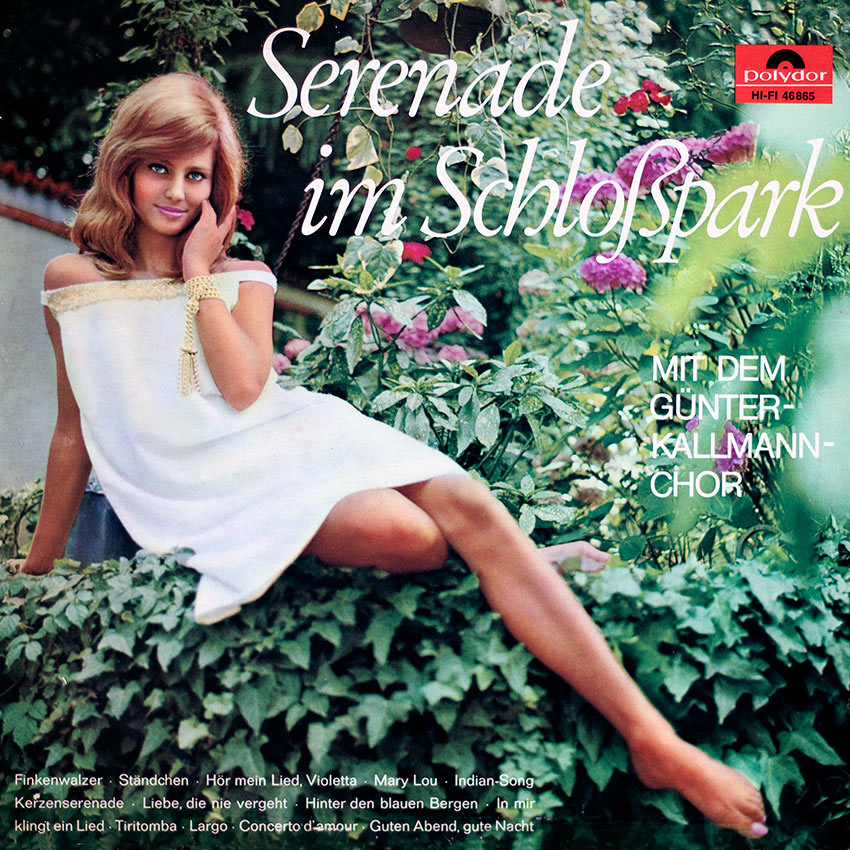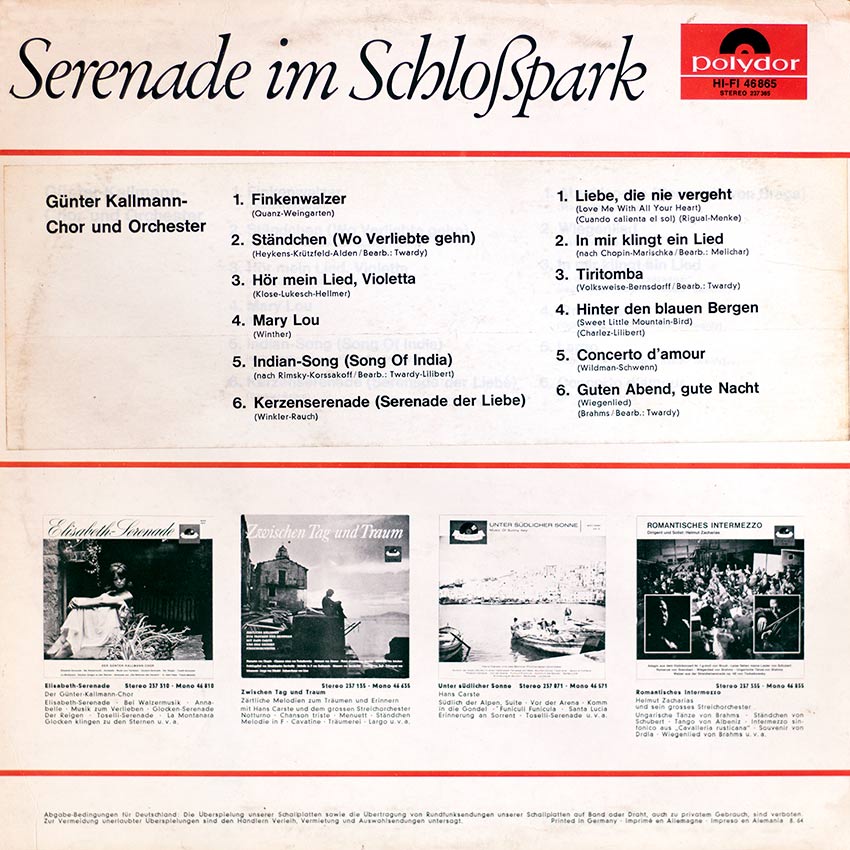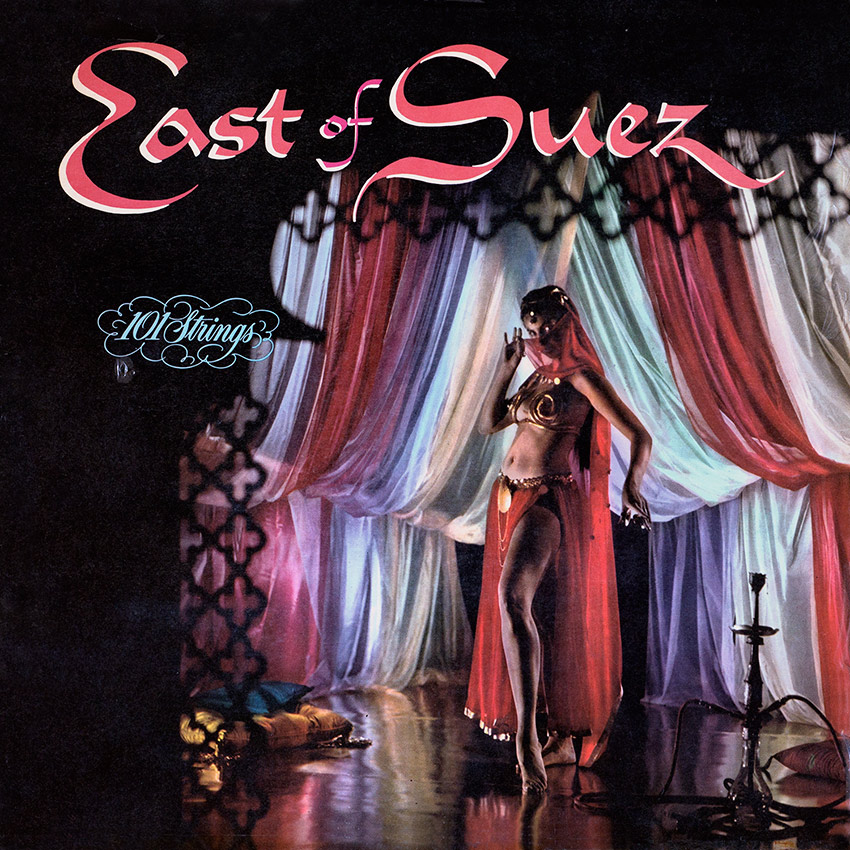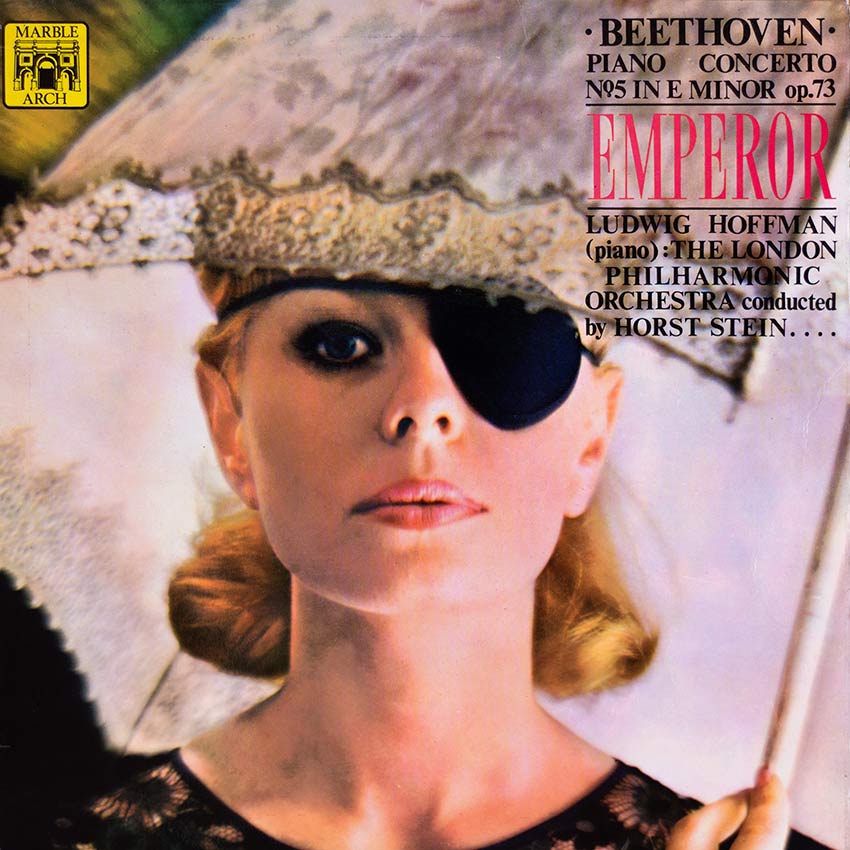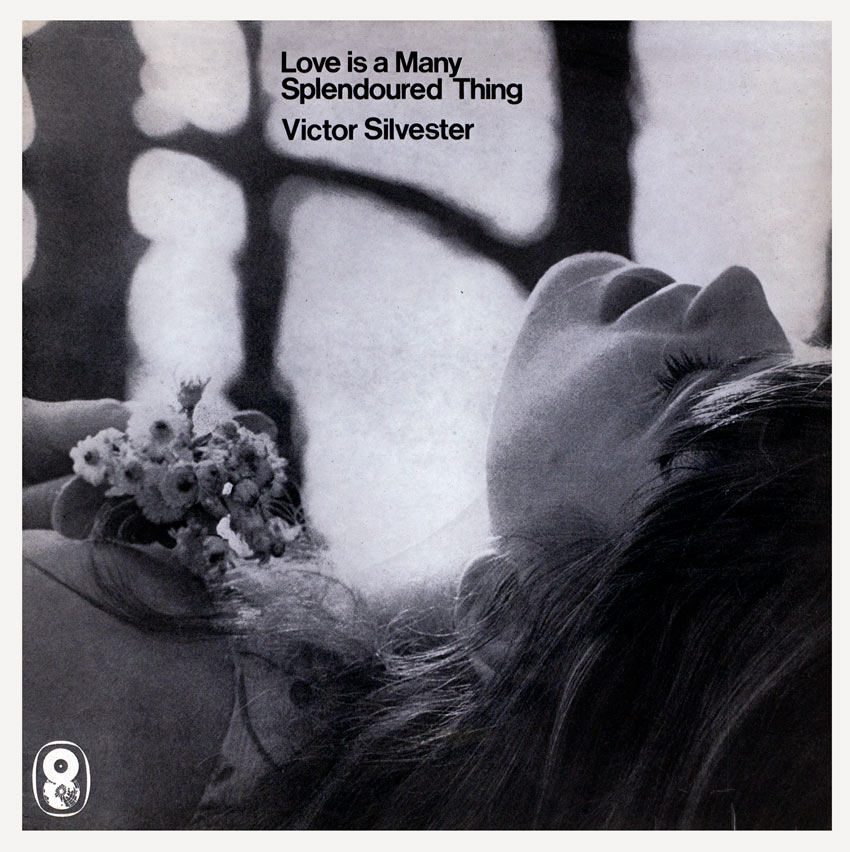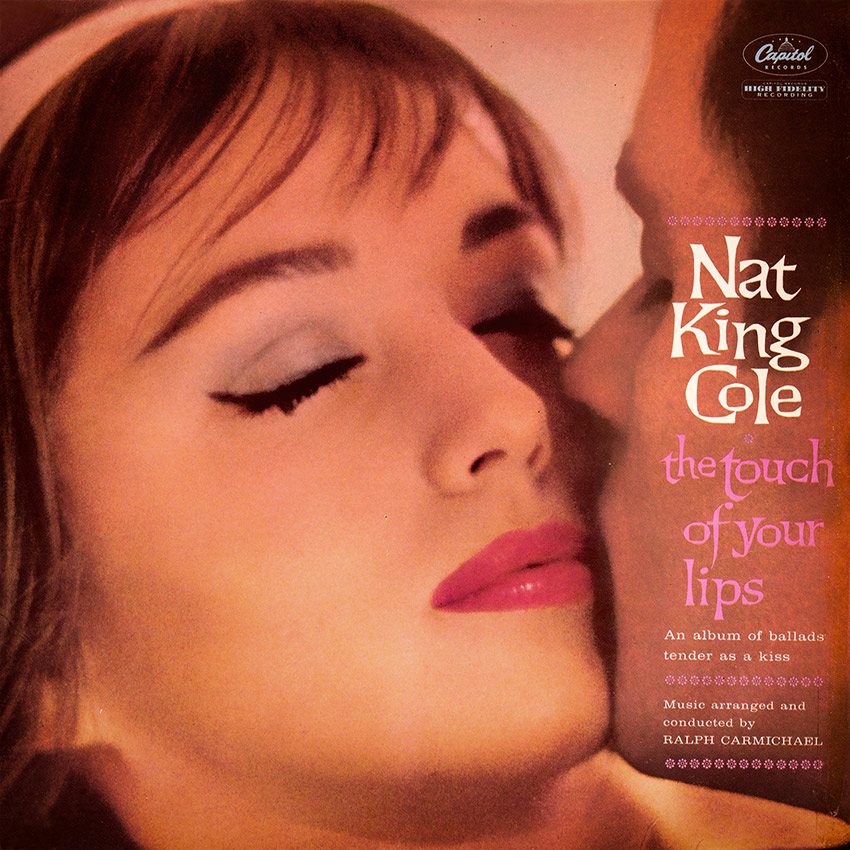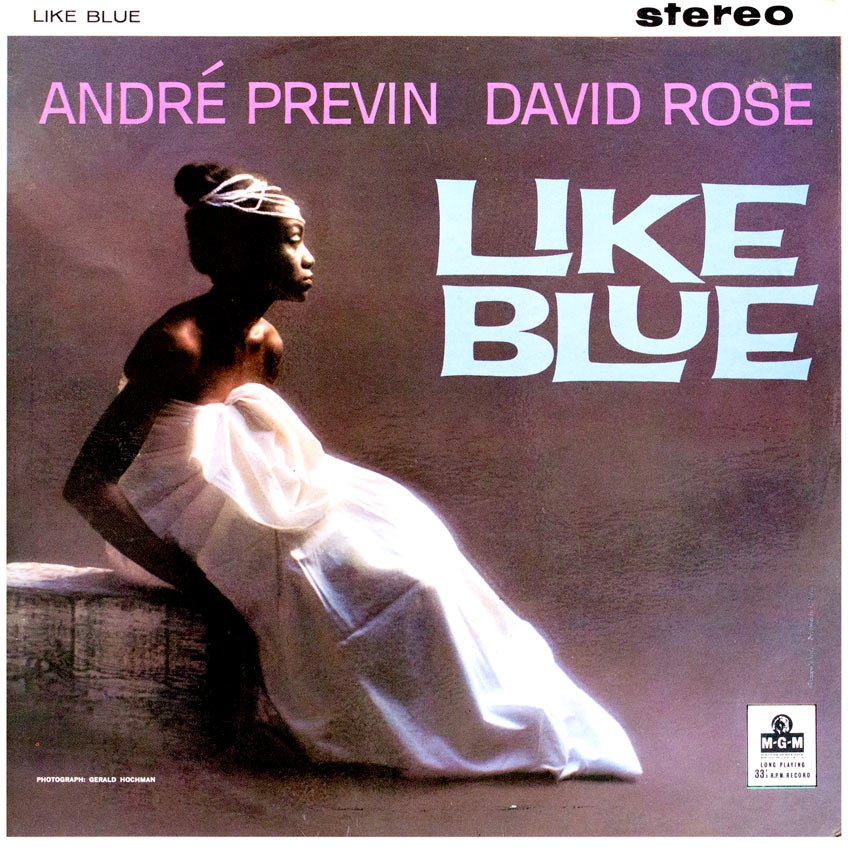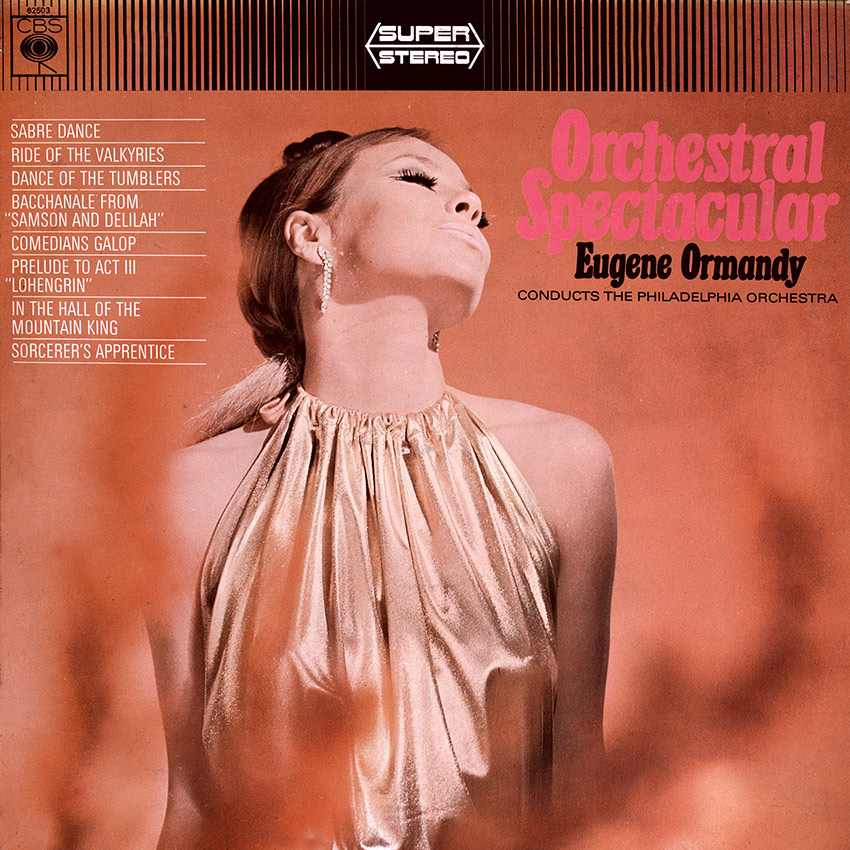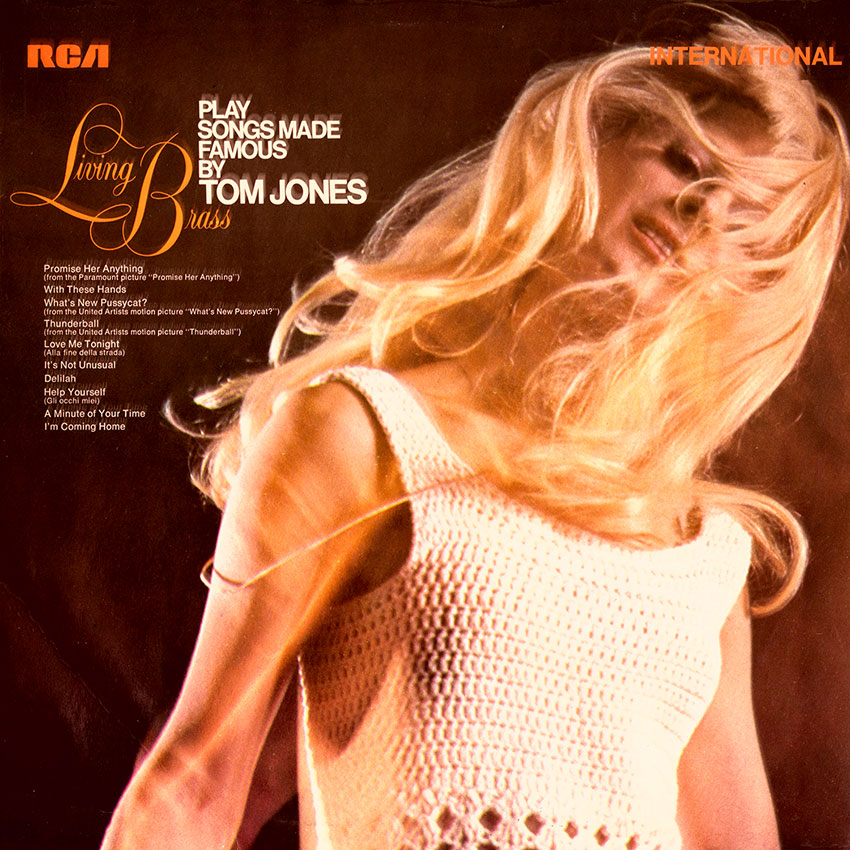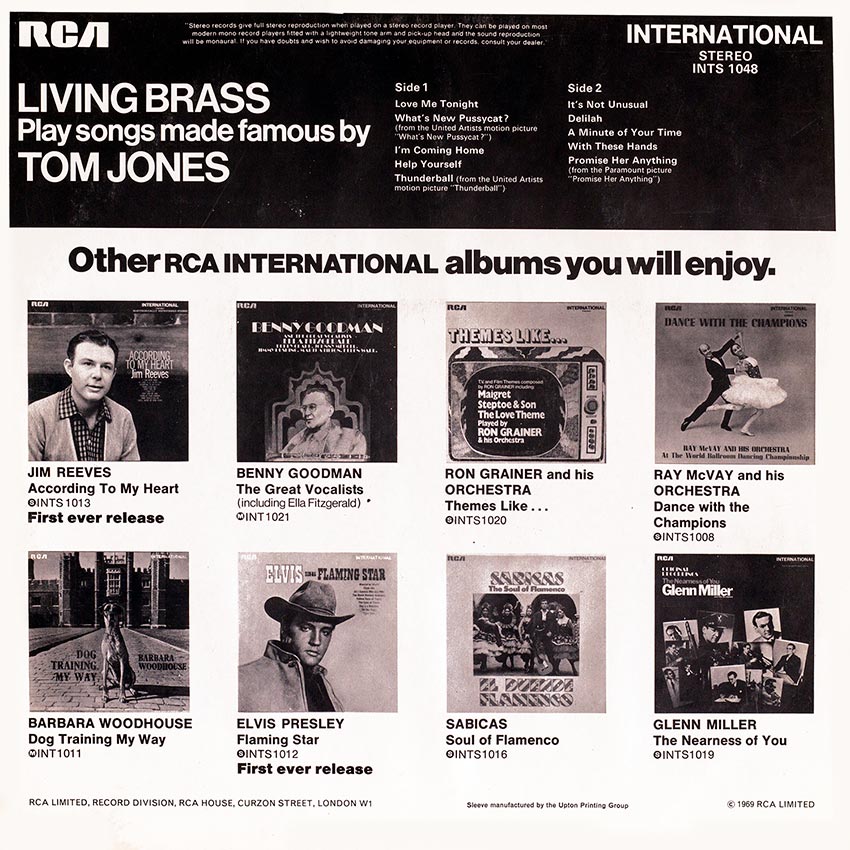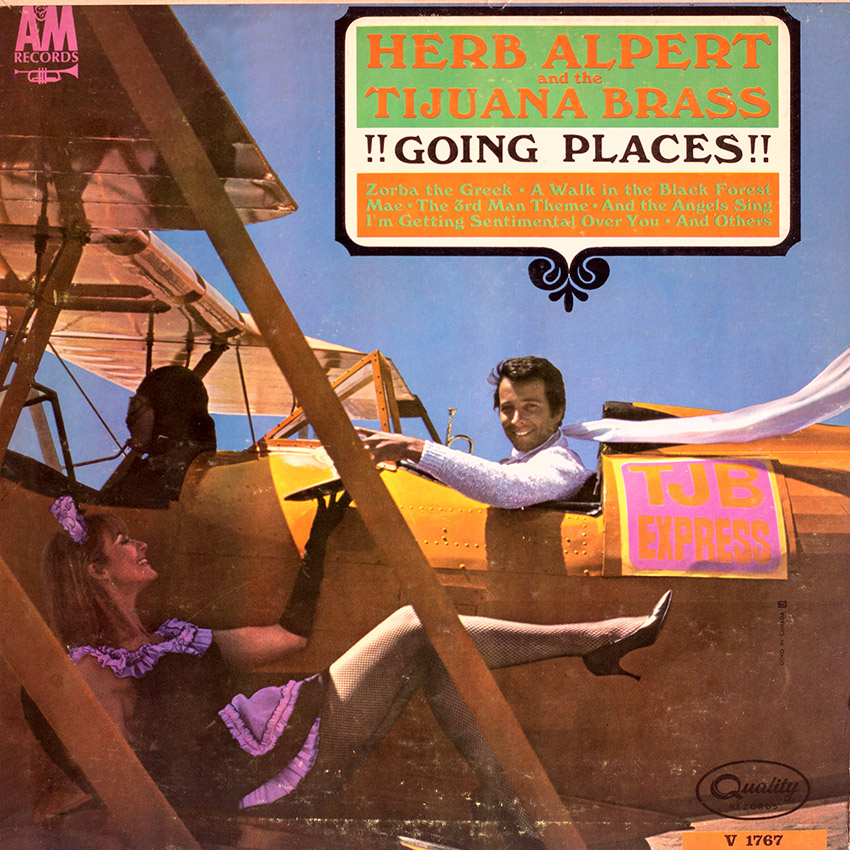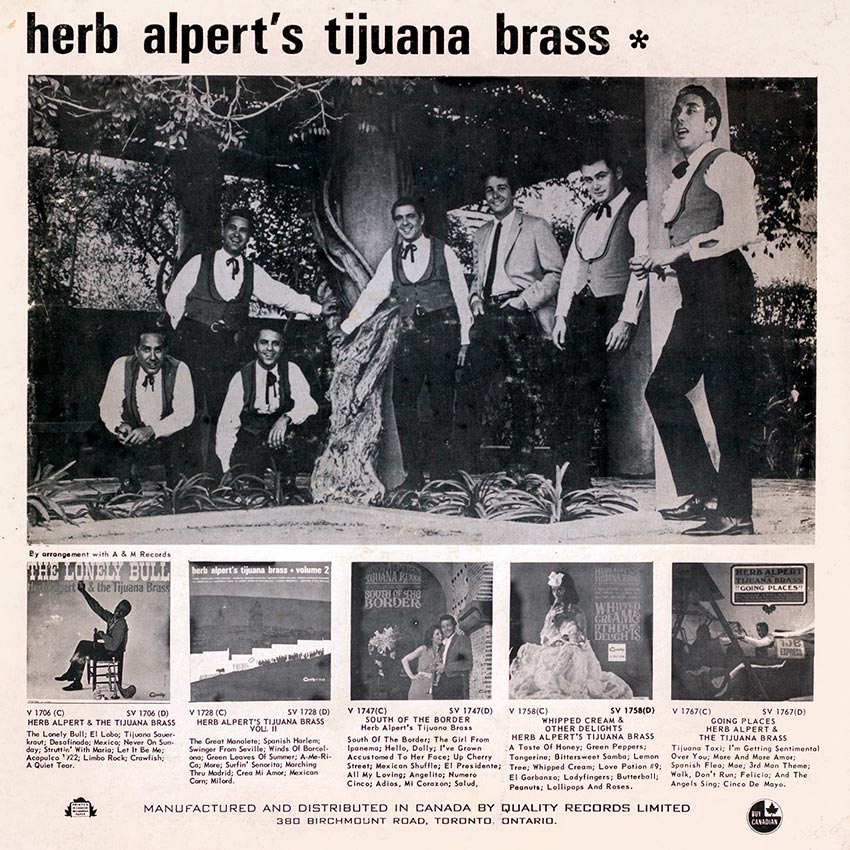101 Strings – East of Suez
Sleeve Notes:
All the spices of the exotic lands east of Suez are wrapped in the warm rich tones of 101 Strings in this magnificently scored album. From the brilliant and scintillating percussive effects that depict the busy bazaars in Baghdad to the sensuous woodwinds that take us to the forbidden halls of the Temple Dancers— these are the moods and sounds that portray the fascinating ports and places of our sojourn in music. From the tent harems of Arab Dance to the nostalgic loveliness of Song of India, this brilliant high fidelity programme is your passport to adventure and romance East of Suez.
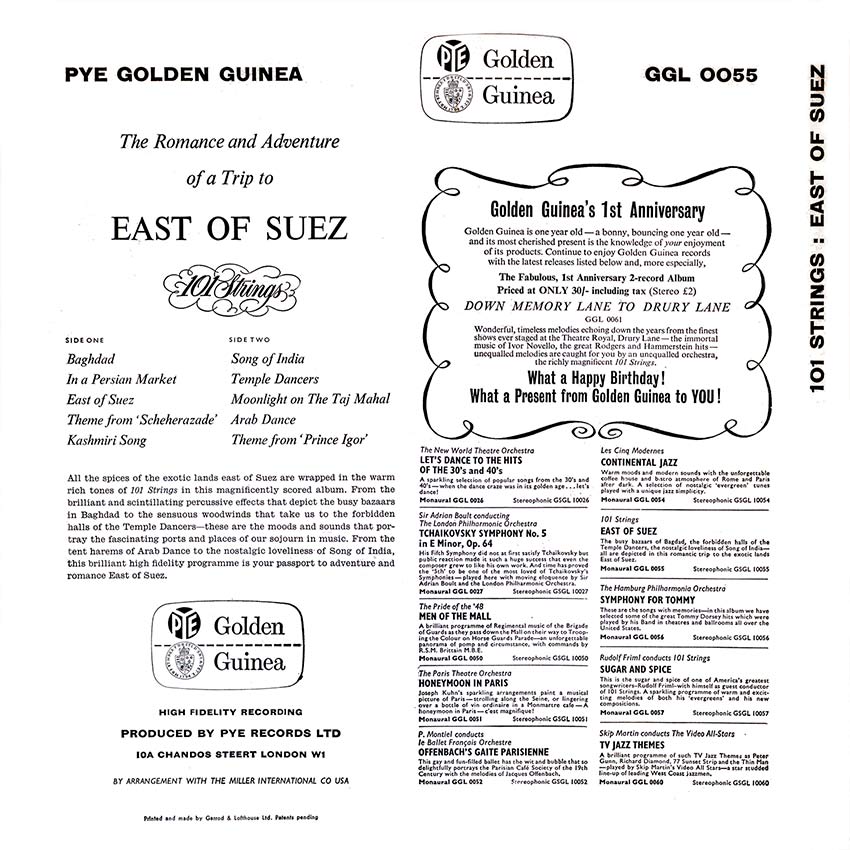
Label: Pye Golden Guinea GGL 0055
The London Philharmonic Orchestra – Beethoven Piano Concerto No. 5
Sleeve Notes:
FIRST MOVEMENT: Allegro
SECOND MOVEMENT: Adagio Un Poco Mosso
THIRD MOVEMENT: Rondo; Allegro
Beethoven’s Piano Concerto in E Flat belongs to the greatest masterpieces of classical music. It was the last of Beethoven’s Piano Concertos and was composed in 1808-1809.
The key of E Flat chosen by Beethoven expresses the solemn and heroic character of the whole work.
Therefore it is not without reason that this concerto has become known as ‘The Emperor’. The splendid introductory cadences at the beginning of the concerto, prepare the listener for the titanic greatness of the work.
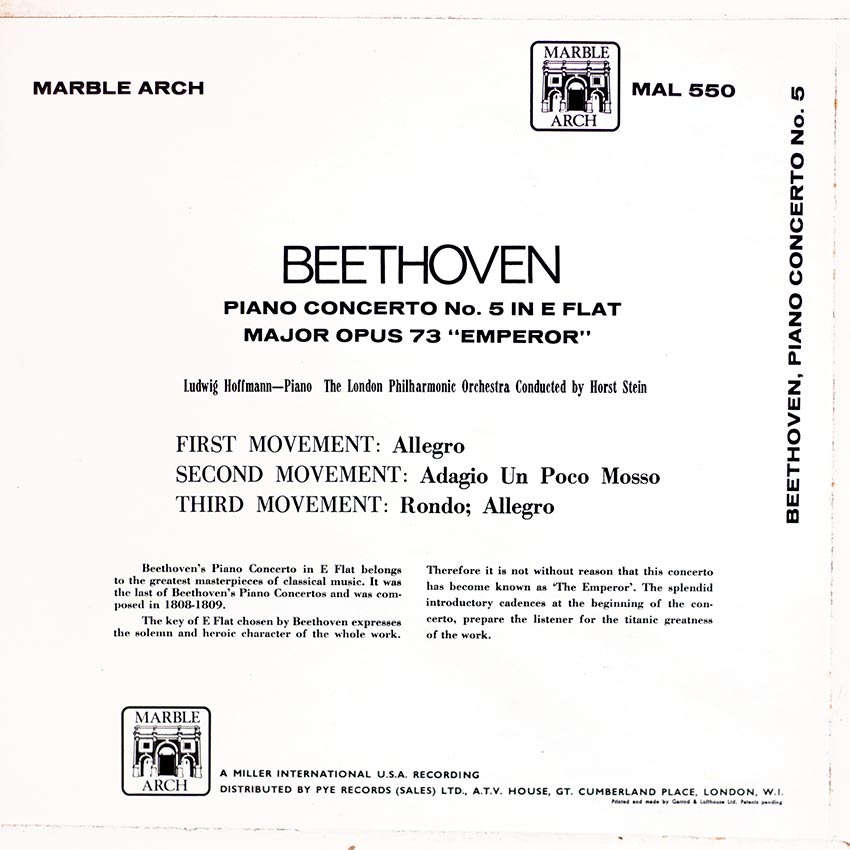
Label: Marble Arch MAL 550
Victor Silvester and His Orchestra – Love Is A Many Splendoured Thing
Sleeve Notes:
The name of Hollywood has been associated with films for many years past and most of America\’s great films have been made there. Although the motion picture industry has now spread far beyond the confines of Hollywood itself, people all over the world still associate the name of this Californian city with any American film they may chance to see.
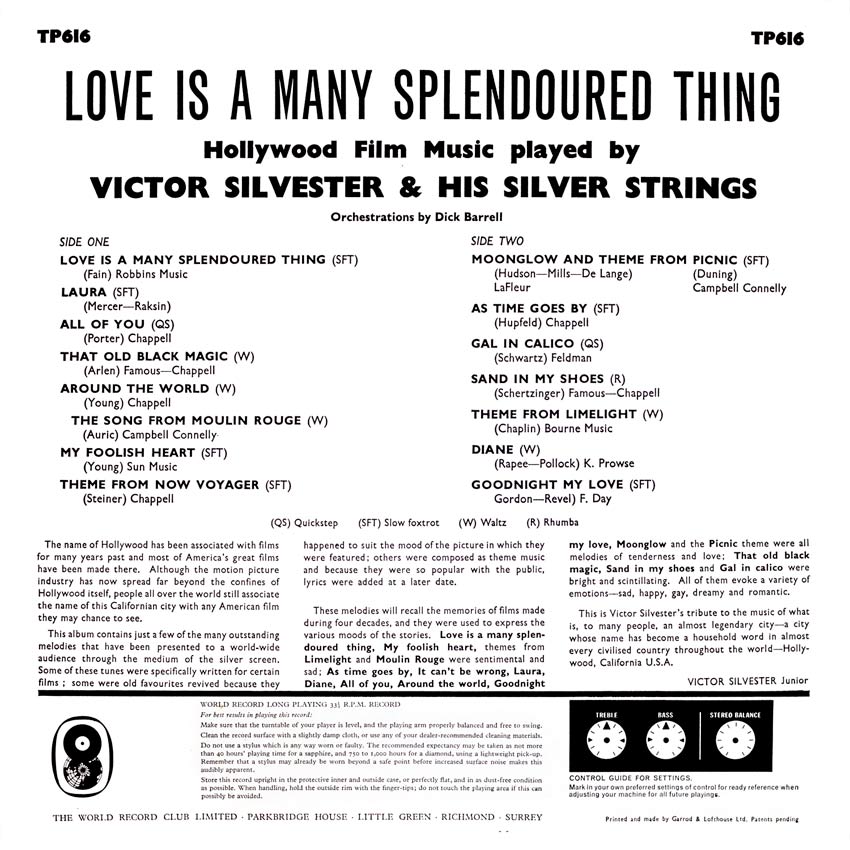
Label: World Record Club TP616
Tony Cucchiara – Se Vuoi Andare Vai
45rpm single from Sicilian legend Tony Cucchiara. Se Vuoi Andare Vai (“If you want to leave, then leave”) was a bit hit in the summer of 1966 with a very attractive cover. “Un disco per l’estate” – A record for summer.
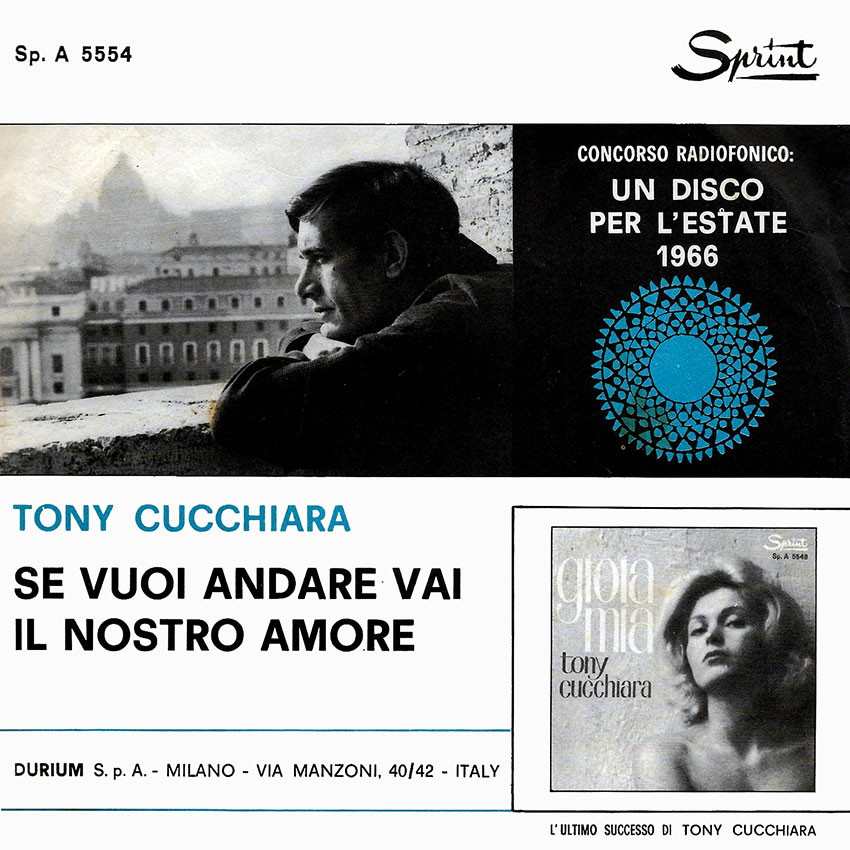
Label: Sprint Sp. A 5554
Nat King Cole – The Touch of Your Lips
Sleeve Notes:
In the romantic mood of The Very Thought of You and Love Is the Thing. Nat king Cole brings his wonderfully appealing warmth to this rich program of beautiful ballads…
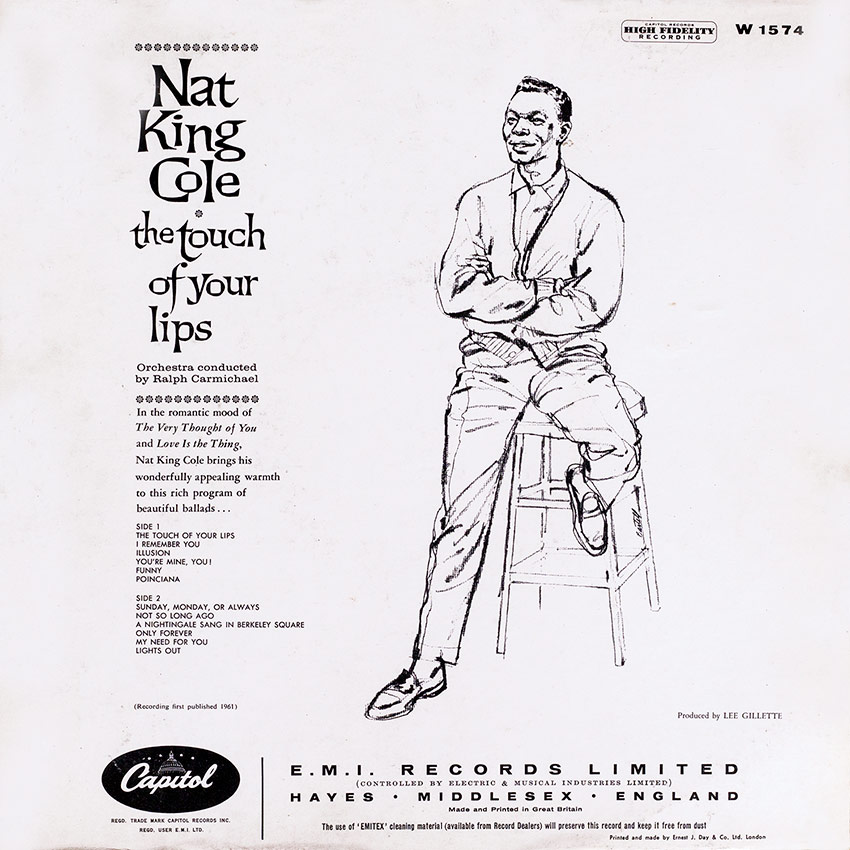
Label: Capitol W1574
Like Blue – André Previn David Rose
Sleeve Notes:
HOLLYWOOD, a land of fabulous success stories, can point to none more fabulous than that of Andre Previn. Young in years, a preponderance of experience has gained him recognition as one of America’s outstanding concert pianists, an established ding artist and one of the screen’s foremost musical composers and conductors at Metro-Goldwyn-Mayer, where he has been employed since 1945. He is currently musical director for two of M-G-M’s most important pictures — Bells Are Ringing and The Subterraneans, both produced by Arthur Freed.
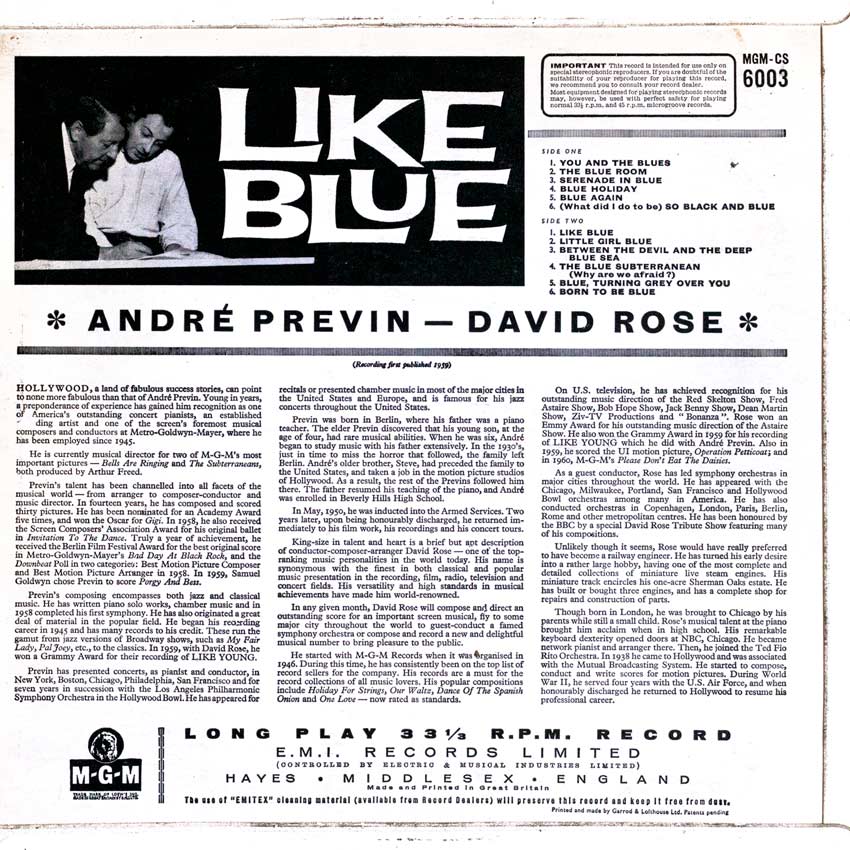
Label: MGM CS 6003
Eugene Ormondy conducts the Philadelphia Orchestra – Orchestral Spectacular
Sleeve Notes:
The eight selections performed here represent out-standing peaks of musical achievement in which the composers pull out all the stops and use the combined resources of that formidable body known as the full orchestra to underscore or actually convey a dramatic scene. Melodic suggestion and paraphrase, the infinite varieties of tonal colour, the sweep and interplay of instrumental contours, the soloist or special ensemble against the backdrop of the larger group—these are some of the devices employed. In these pieces however they have been employed so well, so brilliantly, that the selections have assumed a role and validity of their own. They are in fact among the most stunning examples of musical imagination—no less enduring for the music lover for their sonic grandeur, and no less appealing to the sound enthusiast for their solid musical content.
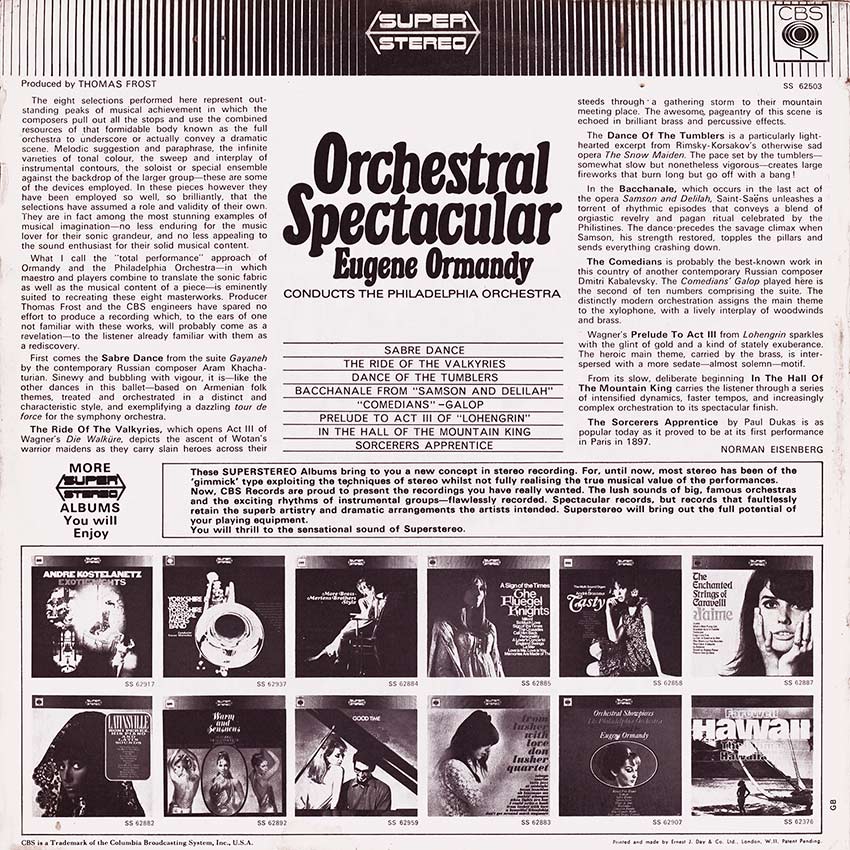
Label: CBS 62503

